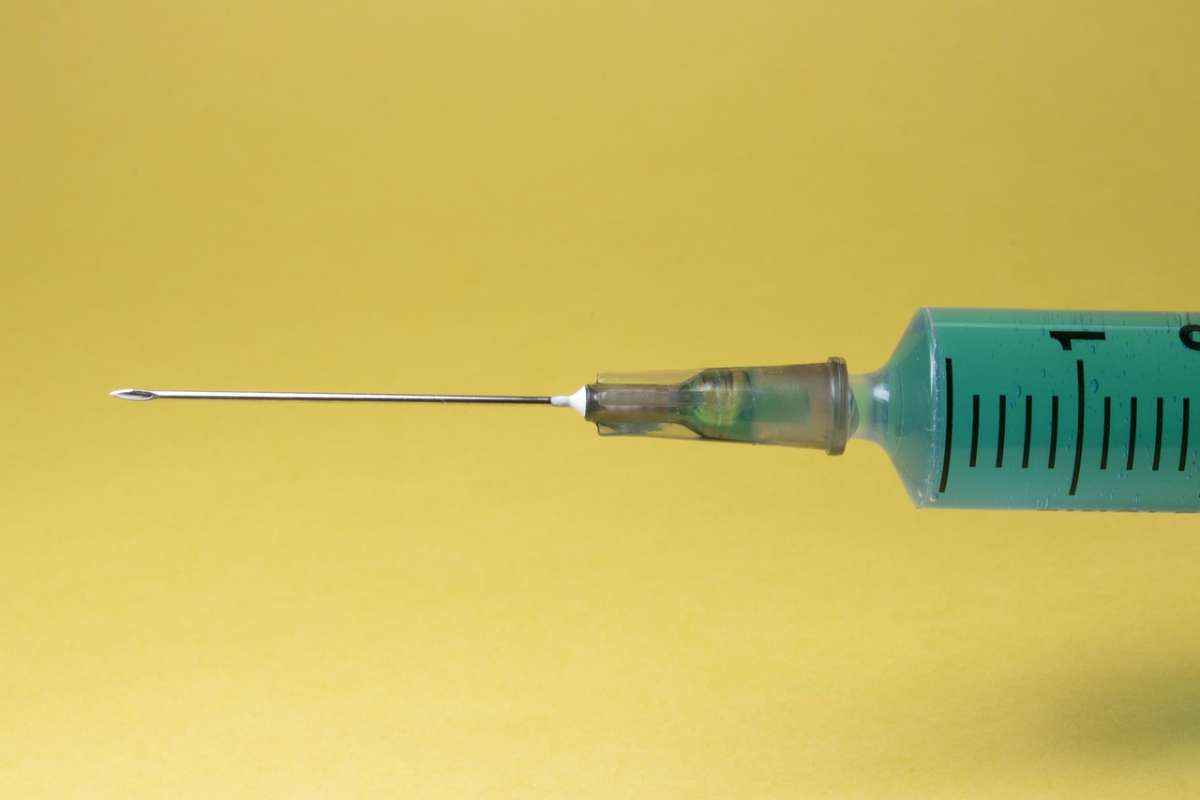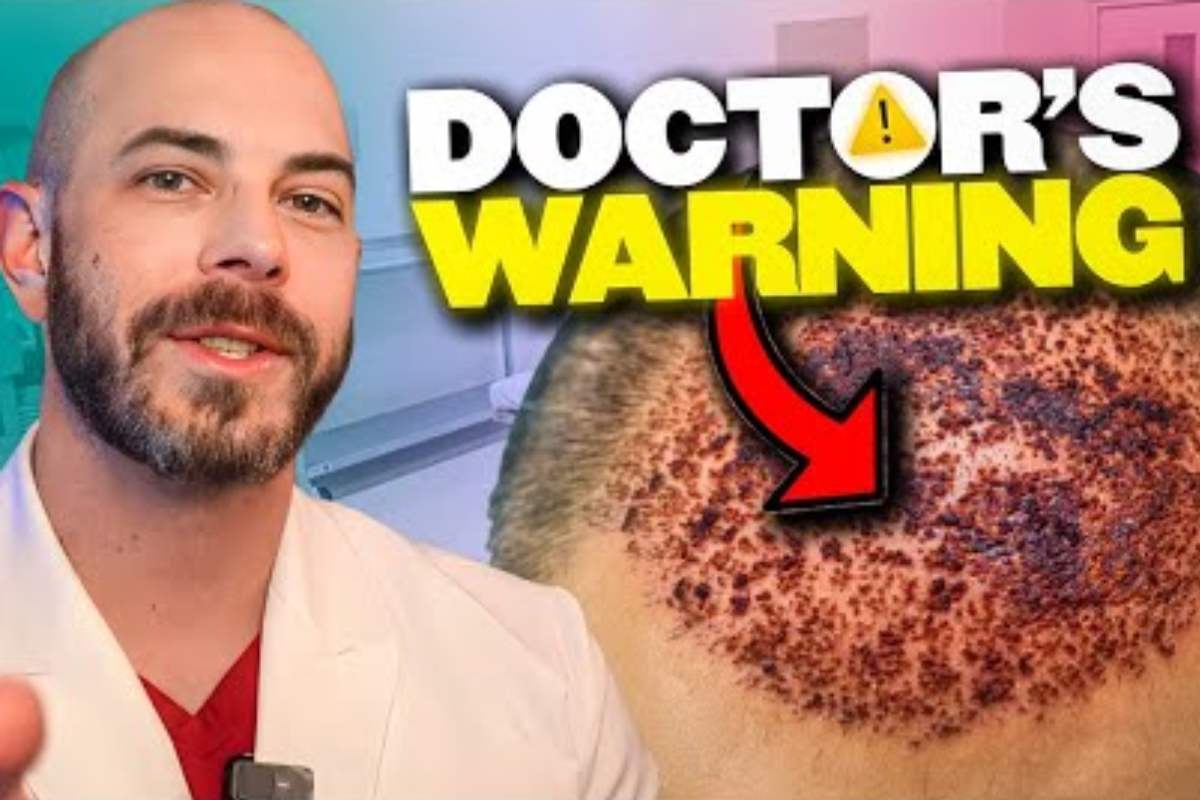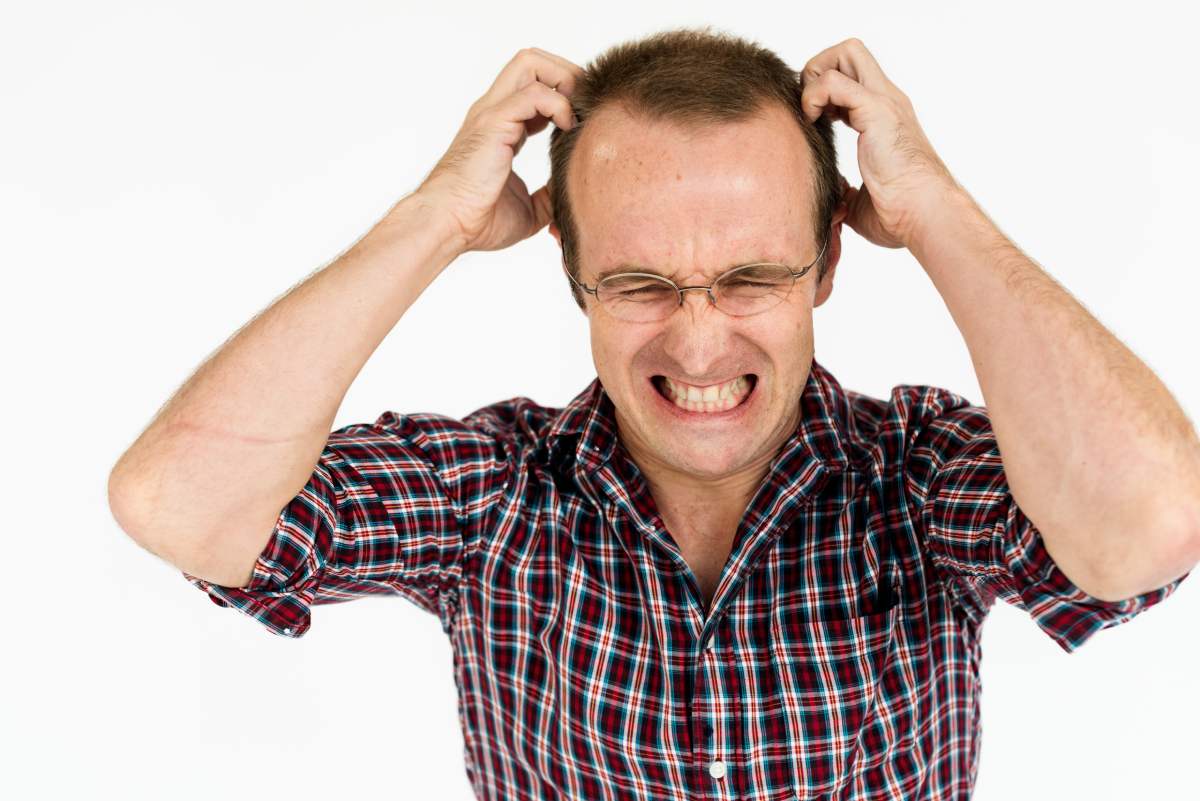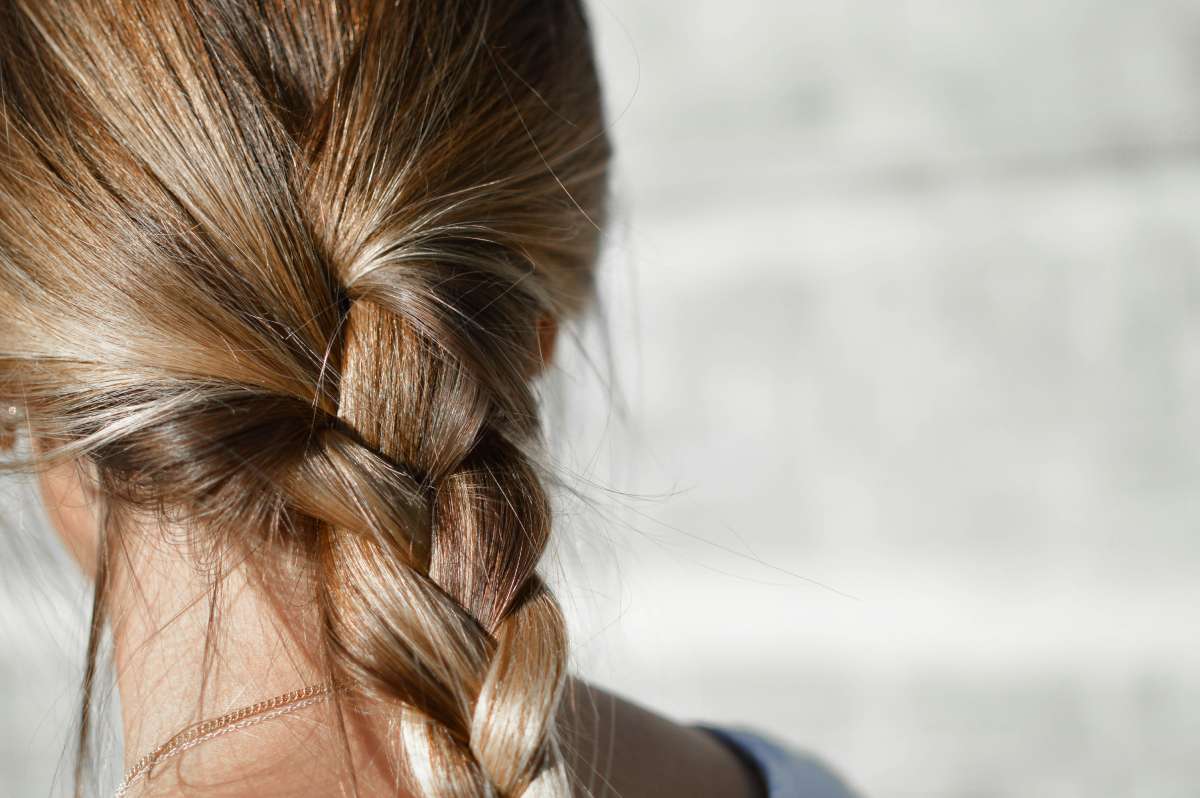Hair loss can happen for a variety of different reasons, and it can be very stressful. While most people know about causes like genetics, stress, or poor diet, fewer know that gut health might also play a role in hair loss.
The gut is home to trillions of bacteria, known as the gut microbiome, which help keep the body healthy. If something disrupts this balance, it can cause health problems that may even affect your hair.
New research shows that poor gut health can lead to issues like inflammation and vitamin deficiencies, which can weaken hair and cause it to thin.
Understanding how the gut works and how it connects to hair health may help people improve both their digestive system and their hair growth.
Understanding Gut Health
Your gut does much more than just digest food; it helps keep your whole body healthy, including your hair. Inside the gut is a community of tiny organisms called the gut microbiome. This includes bacteria, fungi, and other microbes that work together to break down food, absorb nutrients, and protect your body from harmful invaders.
When your gut is healthy, these microbes are balanced, and your body gets the vitamins and minerals it needs to stay strong. But when the balance is thrown off, it can cause problems.
An unhealthy gut can lead to poor nutrient absorption, which means your body isn’t getting enough of the vitamins it needs to grow strong, healthy hair. For example, low levels of vitamin D, biotin, or iron can cause hair to thin and fall out. Gut issues can also trigger inflammation, which may damage hair follicles and lead to hair loss.
Some signs of an unhealthy gut include bloating, gas, irregular bowel movements, or food intolerances. If you notice these symptoms along with hair thinning, your gut health could be part of the problem.
By improving gut health, you can help restore the balance of good bacteria, reduce inflammation, and support hair growth.
The Brain-Gut Microbiota-Hair Follicle Axis
Your gut and hair are connected through something called the brain-gut microbiota-hair follicle axis. This means that when your gut isn’t healthy, it can have a direct effect on your hair’s growth and strength.
One way this happens is through nutrient absorption. The gut helps break down food and absorb key vitamins and minerals your body needs to grow strong, healthy hair. For example:
- Biotin: A vitamin that helps hair grow thicker and stronger.
- Iron: Supports red blood cells, which carry oxygen to hair follicles.
- Vitamin D: Helps create new hair follicles and supports overall growth.
When gut health is poor, your body may not absorb these nutrients properly, leaving your hair weak, thin, and more likely to fall out.
Gut issues can also cause inflammation. Inflammation happens when the body tries to fight off something harmful, like an infection or imbalance. If inflammation spreads to the scalp, it can damage hair follicles, making it harder for hair to grow.
The good news is that hair loss caused by inflammation can often be reversed by improving gut health and reducing the inflammation.
Probiotics, which are healthy bacteria found in some foods and supplements, can help restore balance in the gut, making it easier for your body to absorb the vitamins and nutrients your hair needs. By fixing gut health, you support both your digestive system and your hair follicles, giving your hair a better chance to grow and stay strong.
Digestive Disorders and Hair Loss
Certain digestive disorders can have a big impact on hair health. Conditions like Irritable Bowel Syndrome (IBS) and Inflammatory Bowel Disease (IBD) can disrupt your gut’s ability to absorb nutrients. When your body doesn’t get the nutrients it needs, it struggles to keep your hair strong and healthy.
- Irritable Bowel Syndrome (IBS): This common digestive issue causes problems like bloating, gas, and irregular bowel movements. It can lead to poor nutrient absorption, which may cause hair thinning or shedding.
- Inflammatory Bowel Disease (IBD): IBD includes conditions like Crohn’s disease and ulcerative colitis, which cause inflammation in the gut. This inflammation can damage the lining of your digestive system, making it hard to absorb key vitamins and minerals needed for hair growth.
When digestive disorders cause nutrient deficiencies, hair follicles don’t get the fuel they need. For example:
- Iron deficiency can cause significant hair loss because hair follicles need oxygen to grow.
- Vitamin B12 deficiency can lead to brittle, thinning hair.
Inflammation in the gut can also trigger systemic inflammation (inflammation throughout the body). This can reach your scalp and weaken hair follicles, slowing down growth and causing hair to fall out.
Fixing gut health through proper treatment, diet changes, and supplements can often improve hair health. And for people with IBS or IBD, it’s important to work with a doctor to manage symptoms and ensure your body absorbs the nutrients needed to support hair growth.
Scientific Evidence Linking Gut Health and Hair Loss
Studies show that different causes of hair loss are associated with changes in the hair-biome. Like the gut, our hair follicles contain naturally occurring bacteria, yeast, and other microorganisms. So, it is leading researchers to look at the connection between gut health and hair loss. Researchers found that after a patient with ulcerative colitis was given a fecal transplant to improve their gut microbiome, incidentally, their alopecia areata improved.
One study showed that people with gut dysbiosis (an imbalance of good and bad bacteria in the gut) often experience hair loss due to poor absorption of important nutrients like iron, zinc, and biotin. Without these key nutrients, hair follicles struggle to produce strong, healthy hair.
Inflammation caused by gut issues can spread throughout the body and impact the scalp. This inflammation damages the hair follicles, making it harder for hair to grow. In some cases, researchers have found that by improving gut health and reducing inflammation, hair loss can be reversed.
There is also growing evidence that probiotics, healthy bacteria found in supplements and fermented foods, can improve gut health and support hair growth. Probiotics help restore balance in the gut microbiome, improve nutrient absorption, and reduce inflammation. This creates a better environment for hair follicles to grow and thrive.
These findings highlight how closely the gut and hair are connected. A healthy gut doesn’t just improve digestion, it also gives your hair the nutrients and support it needs to grow strong and stay healthy.
Improving Gut Health for Better Hair
Improving gut health is one of the best ways to support healthy hair growth. A healthy gut allows your body to absorb the right nutrients and reduces inflammation, both of which are key to stronger, thicker hair. Here are simple ways to improve your gut health and give your hair the boost it needs:
- Eat a Gut-Friendly Diet
Focus on foods that support a healthy gut and provide key nutrients for hair growth:
- Probiotic foods: Foods like yogurt, kefir, sauerkraut, kimchi, and kombucha contain healthy bacteria that help balance your gut.
- Prebiotic foods: Foods like bananas, garlic, onions, and oats feed the good bacteria in your gut.
- Vitamins and minerals: Include foods rich in biotin (eggs, nuts), iron (red meat, spinach), and vitamin D (fatty fish, fortified dairy) in your diet.
- Take Probiotics
Probiotic supplements can help restore balance in the gut microbiome, especially if you’ve been sick or have taken antibiotics. A healthy gut makes it easier for your body to absorb nutrients like biotin and iron, which support hair growth.
- Reduce Stress
Chronic stress harms the gut and can also cause hair loss. Try stress-reducing activities like yoga, deep breathing, meditation, or light exercise to support both your gut and your hair.
- Avoid Processed Foods and Sugars
Processed foods, sugary drinks, and artificial additives can harm your gut bacteria. Cutting back on these foods can help restore gut balance and improve nutrient absorption.
- Stay Hydrated
Drinking enough water keeps your digestive system working well and supports nutrient transport to hair follicles.
- Sleep Well
A good night’s sleep gives your gut time to repair and reduces inflammation, which can protect your hair follicles.
By improving gut health with simple changes to your diet and lifestyle, you can give your body what it needs to grow healthier, stronger hair. For long-term issues, like digestive disorders, working with a doctor can help ensure your gut, and your hair, get the care they need.
Gut Health and Hair Loss
Your gut health and hair growth are more connected than many people realize. An unhealthy gut can lead to poor nutrient absorption, inflammation, and a weakened immune system, which are all problems that can cause hair to thin, weaken, or fall out.
By focusing on improving gut health, you can address these issues and support healthy hair growth. Simple changes like eating probiotic-rich foods, taking supplements when needed, and managing stress can help restore balance in your gut microbiome. This allows your body to get the vitamins and nutrients it needs, like biotin, iron, and vitamin D, to keep your hair strong and growing.
If you are experiencing digestive problems or unexplained hair loss, it’s a good idea to talk to a doctor. By treating gut health and identifying any nutrient deficiencies, you can give your body the tools it needs for healthier digestion and healthier hair.
A strong gut means stronger, healthier hair over time.







